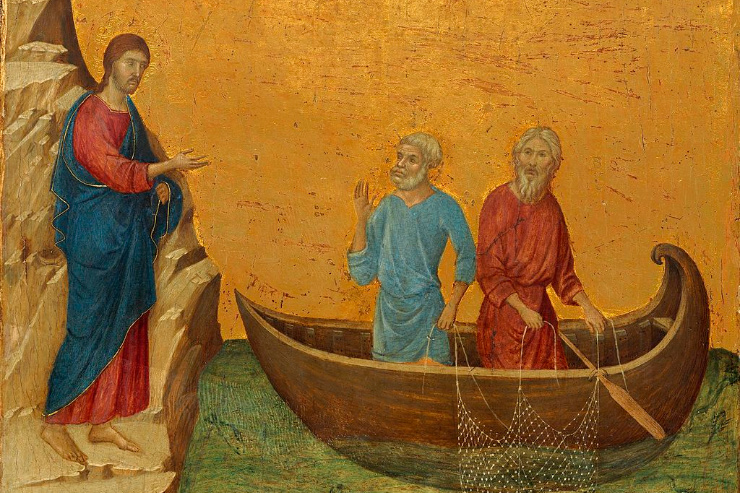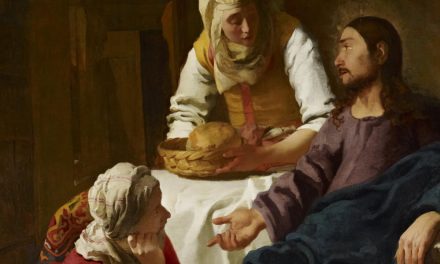 What is the Church? Perhaps I used to think that question had an easy answer. But even flipping open the Catechism will give you several different images, definitions, and nuances. It’s something Councils have discussed and ink has spilled out from theological pens about for ages. The Mystical Body of Christ, the Bishops in union with the Pope, the People of God, the Bride of Christ, Ekklesia, the Kingdom of God. People use the word to speak of our liturgical assembly and the local community but also the teaching body with its hierarchy.
What is the Church? Perhaps I used to think that question had an easy answer. But even flipping open the Catechism will give you several different images, definitions, and nuances. It’s something Councils have discussed and ink has spilled out from theological pens about for ages. The Mystical Body of Christ, the Bishops in union with the Pope, the People of God, the Bride of Christ, Ekklesia, the Kingdom of God. People use the word to speak of our liturgical assembly and the local community but also the teaching body with its hierarchy.
I know what the Catechism tells me about it, I know it’s instituted by Christ, and I know it’s one, holy, catholic, and apostolic.
But what does this mean when someone is in my office, upset about what the Church teaches, and I’m trying to decide just what Church they’re talking about? They’re angry at “the Church,” and I’m trying to decipher whether they’re angry at a person, angry at a teaching, or angry at God.
What about when someone asks me if I love the Church, and after I say I do, they then reveal how much “the Church” has hurt them? I try to unpack in five minutes or less—before they write me off—how the Church can be holy when it’s made up of sinners, and they look at me blankly. Suddenly I’ve become a theologian spouting concepts that mean nothing to their everyday life. They have come to me with a wound, and I have tried to bandage it with definitions.
As I drive home and think over the conversation for the fiftieth time, I simultaneously love my job and hate it at the same time. Once again, I’m reminded that I’m the face of the Church for someone. Like it or not, every Christian is liable to be “the Church” for someone. If I cut someone off in traffic and they see the Rosary hanging around my rear-view mirror, it might be the last straw in their disillusionment with Catholics. If I distort a teaching of the Church to someone, it could be their understanding for the rest of their lives. While everyone is accountable for their own journey of faith, I can’t hide from the fact that I could be a player in their drama.
On the reverse side, I have to cling on to the hope that I’m an actor in their drama in a positive way. Perhaps they have a misunderstanding of a teaching of the Church that I help clear up. Maybe they think all Catholics are heartless until they witness some small act of charity on my part. Every time I fail at my vocation as a Christian, I pray someone witnesses when I succeed—not to benefit my pride, but so that they come away with a better idea of just what the Church is.
“The Church is both visible and spiritual, a hierarchical society and the Mystical Body of Christ. She is one, yet formed of two components, human and divine. That is her mystery, which only faith can accept.” (CCC 779)
Yes, that is the mystery. Perhaps I need to talk less and pray more. If it’s a mystery that requires faith, I can only explain so much. “It is only ‘with the eyes of faith’ that one can see her in her visible reality and at the same time in her spiritual reality as bearer of divine life” (CCC 770). The person sitting in my office has encountered the sinners, and I need to help him encounter the Savior. She has encountered the wounds, and I need to help her encounter the Divine Physician.
At the very beginning, the Church was made up of a Pope who denied Christ and a friend who betrayed him. There will be plenty of Judases to give us reasons to leave the Church. Like it or not, the Church is made up of people, and those people are sinners… of whom I am the first. (1 Tim 1:15). May I never forget that I may be “the Church” to someone today. Something I do, something I say, something I don’t do, may be filed away in someone’s consciousness as a paradigm of their image of the Catholic Church, for good or for ill. Christ, make me a worthy member of your Body today…













